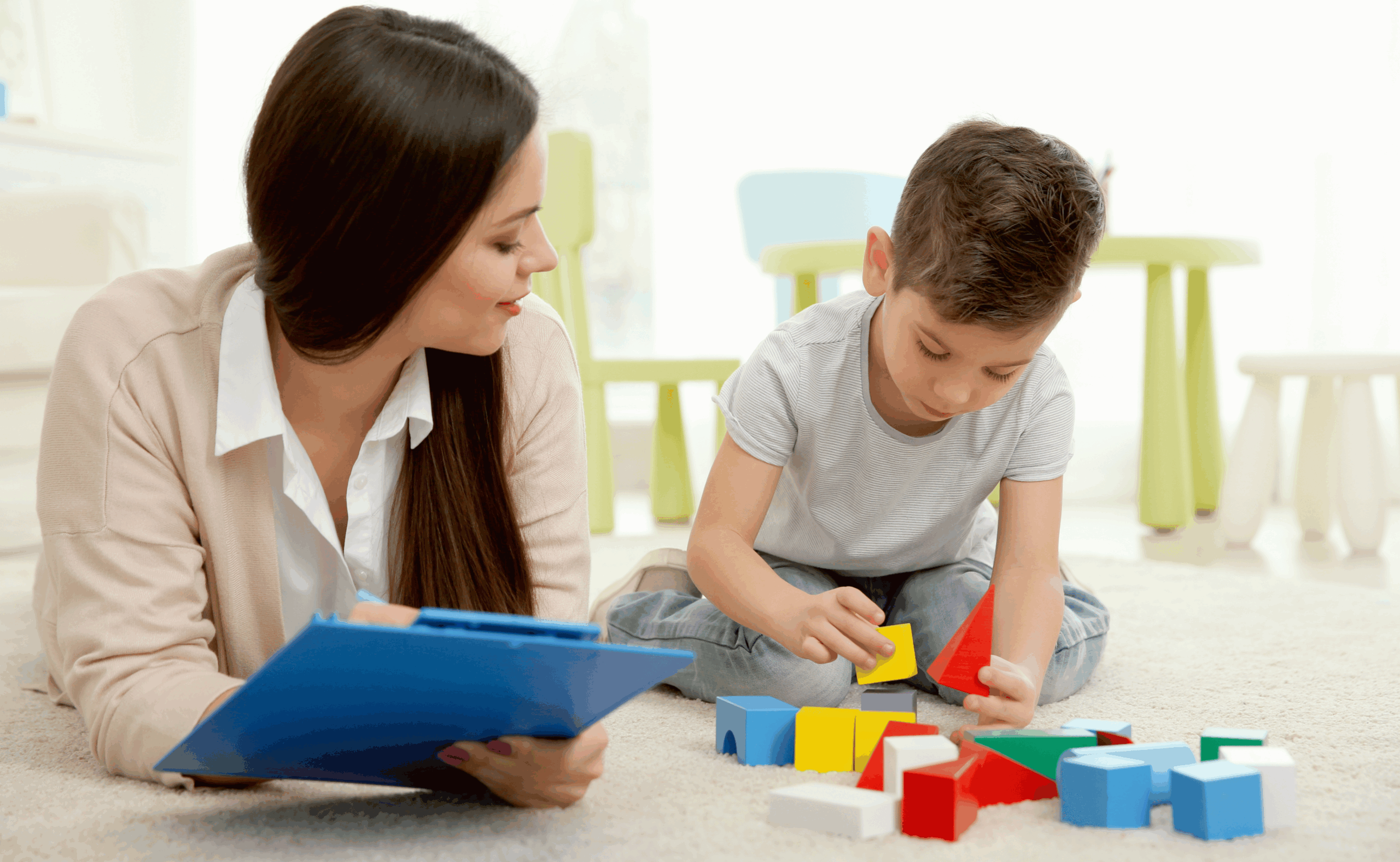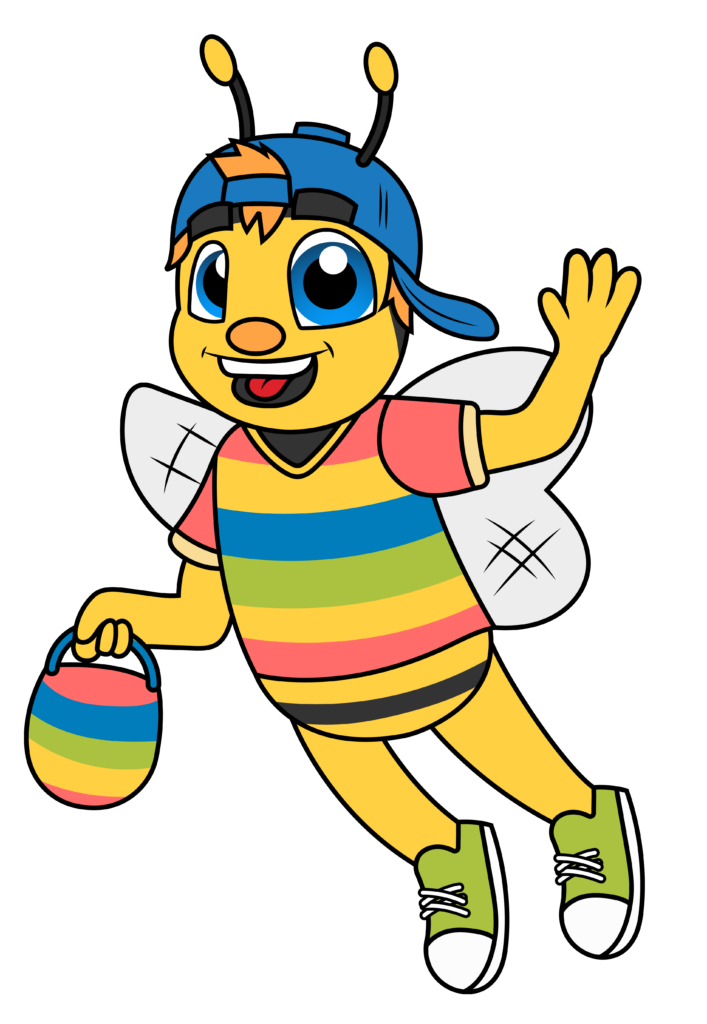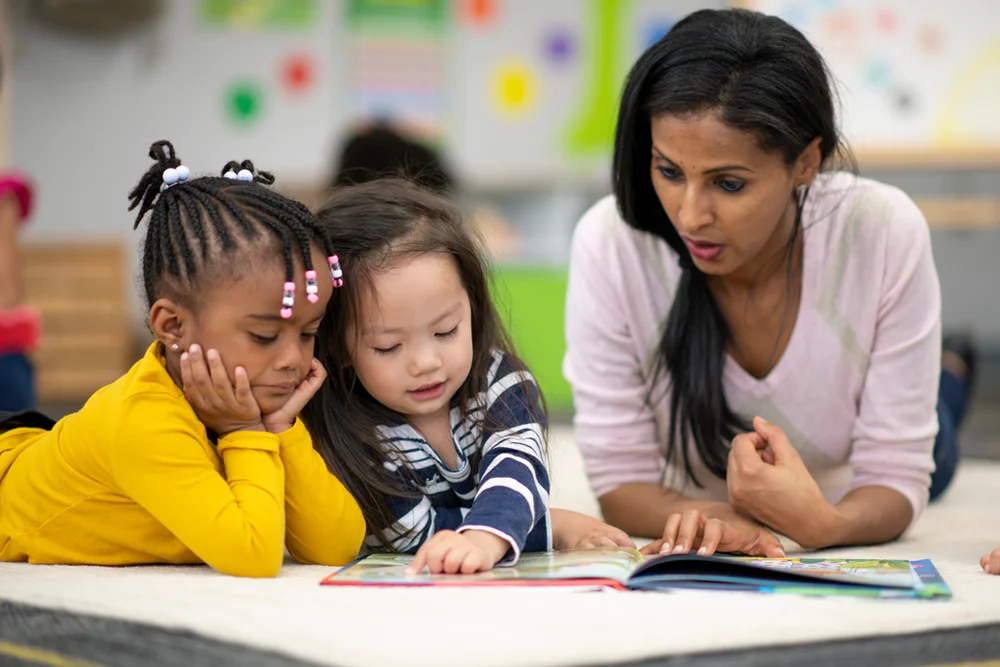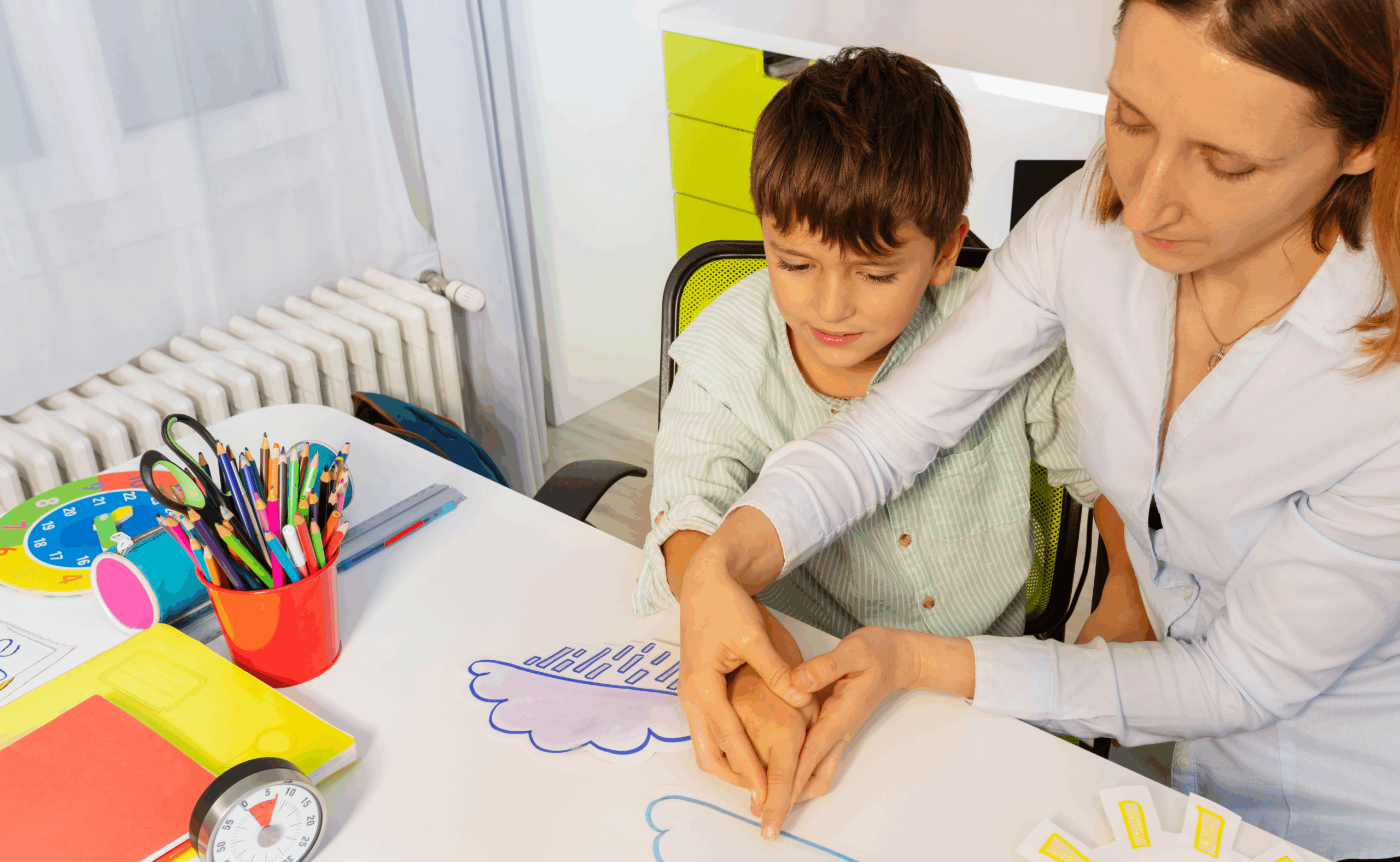Top Therapy Games for Kids
Five-year-old Jackson sat in the corner of his kindergarten classroom every day during group activities, overwhelmed by the noise and unable to focus on anything for more than a few minutes. His teacher had tried everything – sticker charts, quiet corners, even one-on-one instruction – but nothing seemed to help. His parents were worried that he might need to repeat kindergarten or require special education services.
Then Jackson started working with an occupational therapist who introduced something unexpected: games. Not educational worksheets disguised as fun, but actual games designed around his interests and developmental needs. Within weeks, Jackson was playing memory matching games that helped him practice sustained attention, participating in cooperative board games that built his social skills, and even leading other children in movement games that helped regulate his sensory system.
Six months later, Jackson was not only keeping up with his classmates but often serving as a peer helper for other children who struggled with attention and focus. His transformation happened not through intensive drills or clinical interventions, but through carefully selected games that made therapy feel like the best part of his day.
Jackson’s experience illustrates the remarkable power of game-based therapeutic approaches for children. While traditional therapy methods often feel like work to young minds, games tap into children’s natural motivation and curiosity, creating environments where learning and healing happen almost effortlessly. When therapeutic goals are embedded within enjoyable gaming experiences, children don’t just tolerate intervention – they eagerly anticipate it and often ask for more.
The beauty of therapy games for kids lies in their ability to address multiple developmental domains simultaneously while maintaining the joy and spontaneity that characterize healthy childhood experiences. A simple board game might support turn-taking skills, emotional regulation, problem-solving abilities, and social communication all within a single 20-minute session.
At Clever Bee Academy, educators have discovered that integrating game-based therapeutic approaches into their Play & Learn curriculum creates dynamic learning environments where children with diverse needs can thrive alongside their peers. Rather than pulling children out for separate therapeutic interventions, they’ve found ways to weave therapeutic gaming naturally into daily activities, making support feel seamless and inclusive.
This comprehensive exploration examines evidence-based approaches to using games therapeutically with children, offering specific game recommendations and implementation strategies that parents, teachers, and therapists can use immediately. Whether addressing diagnosed developmental challenges or simply supporting optimal growth, these game-based approaches provide accessible pathways to meaningful progress.
The Power of Game-Based Therapy for Children
Children’s brains are naturally wired for learning through play, making games ideal vehicles for therapeutic intervention. Unlike adults who can often benefit from discussing problems abstractly, children process information and develop skills most effectively through hands-on, engaging experiences that capture their attention and imagination.
Games provide natural motivation that traditional therapeutic approaches often struggle to achieve. When children are genuinely enjoying themselves, their brains release neurotransmitters that enhance learning and memory formation. This neurochemical advantage means that skills learned through enjoyable gaming experiences are more likely to be retained and generalized to other situations.
The structure inherent in most games provides therapeutic benefits that extend far beyond the specific skills being targeted. Games typically involve rules, turn-taking, goal-oriented behavior, and problem-solving – all executive functioning skills that support academic success and daily living independence. Children who struggle with organization, planning, or impulse control often show remarkable improvement when these skills are practiced within gaming contexts.
Reduced anxiety represents another significant advantage of game-based therapeutic approaches. Many children develop negative associations with therapy or intervention services, viewing them as evidence that something is wrong with them. Games reframe therapeutic work as fun and desirable, eliminating resistance while building positive associations with learning and growth.
Research consistently demonstrates that children who receive therapeutic support through game-based interventions show better engagement, faster skill acquisition, and improved generalization compared to those who receive more traditional therapeutic approaches. Gaming interventions also tend to have lower dropout rates and higher family satisfaction, creating more sustainable therapeutic relationships.
The social nature of many games provides natural opportunities for practicing interpersonal skills that are difficult to teach through individual instruction. Children learn cooperation, communication, conflict resolution, and empathy through gaming experiences that feel authentic rather than contrived.
Different types of developmental challenges respond particularly well to game-based interventions. Children with attention difficulties often show dramatic improvement when practicing focus skills through engaging games rather than repetitive exercises. Those with social challenges benefit from the natural peer interaction that gaming provides, while children with motor skill delays often make rapid progress when practicing coordination through fun, motivating activities.
Communication challenges that resist traditional speech therapy approaches sometimes respond remarkably well to game-based interventions that create natural reasons for verbal interaction. Children who rarely speak in clinical settings may become quite chatty during games that capture their interest and provide comfortable social contexts for communication.
Age-Appropriate Therapy Games for Kids by Development Stage
Toddlers and Preschoolers: Foundation Building Through Simple Games
The early years offer unique opportunities for establishing developmental foundations through simple games that align with young children’s natural interests and capabilities. During this stage, therapy games for kids focus on basic building blocks like sensory processing, communication development, and emotional regulation through activities that feel more like play than intervention.
Sensory exploration games prove particularly valuable for young children because sensory processing underlies virtually all other developmental skills. Simple activities like “mystery box” games where children identify objects by touch help build sensory discrimination skills while reducing tactile defensiveness. Musical movement games that incorporate different tempos and volumes support auditory processing while providing opportunities for gross motor development and self-regulation.
Color and texture matching games using everyday household items create rich learning opportunities while building classification skills, visual attention, and fine motor coordination. Children might sort socks by texture, match fabric squares to pictures, or create collages using materials with similar properties.
Communication building games during these early years focus on establishing foundational language skills through interactive, meaningful activities that create natural reasons for verbal expression. Animal sound imitation games help children practice articulation while building vocabulary and encouraging playful vocal exploration. Simple story retelling activities using props or picture books support narrative development while building memory and sequencing skills.
Turn-taking games using pictures, cards, or simple board games introduce social communication concepts while building patience and social awareness. These games might involve passing a special object while sharing something about themselves, taking turns adding to a group story, or participating in simple singing games that require waiting for cues.
Motor skills development games for this age group focus on building coordination and strength through activities that feel like pure fun. Simple obstacle courses using pillows, tape lines, and household items help develop gross motor planning while building confidence in physical abilities. Stacking and building competitions using blocks, cups, or other materials support fine motor development while encouraging problem-solving and persistence.
Fine motor skill treasure hunts where children search for small objects, manipulate containers, or use tools like tweezers or tongs provide practice with hand strength and coordination while maintaining high interest levels. These activities often become so engaging that children don’t realize they’re working on therapeutic goals.
Early Elementary: Expanding Game Complexity
As children enter elementary school, their cognitive development allows for more complex gaming experiences that build on earlier foundations while addressing the increased academic and social demands they face. This developmental stage proves crucial for establishing skills that will support long-term success in school and peer relationships.
Social skills board games become increasingly important during these years as peer relationships take on greater significance. Cooperative games where players work together toward common goals teach collaboration while reducing the competitive pressure that can overwhelm some children. Games like “Outfoxed!” or “Hoot Owl Hoot!” require players to communicate and strategize together rather than competing against each other.
Emotion identification card games help children build emotional vocabulary while practicing recognition of facial expressions and social cues. These games might involve matching feeling faces to situation cards, acting out emotions for others to guess, or creating stories about characters experiencing different emotions.
Problem-solving puzzle challenges appropriate for this age group help develop logical thinking and persistence while building confidence in tackling difficult tasks. These might include collaborative jigsaw puzzles, logic games like “Rush Hour Jr.,” or building challenges that require planning and spatial reasoning.
Academic support games help children who struggle with traditional learning approaches find alternative pathways to skill development. Reading comprehension games might involve acting out stories, creating alternate endings, or playing character-based role-playing games. Math skills games using manipulatives, dice, or cards make abstract concepts concrete while maintaining engagement through game-like formats.
Writing practice through creative game scenarios helps children who resist traditional writing assignments find motivation for developing literacy skills. Story-building games where children take turns adding sentences, character creation activities, or collaborative comic strip development can make writing feel creative and enjoyable rather than burdensome.
Emotional regulation games become increasingly sophisticated during these years, often incorporating mindfulness concepts or coping strategy practice in game-like formats. Breathing games that incorporate movement, visualization, or creative elements help children develop self-regulation skills they can use independently when feeling overwhelmed or anxious.
Anger management games might involve physical activities that provide appropriate outlets for intense emotions, creative expression games that help children process difficult feelings, or problem-solving games that teach alternative responses to frustrating situations.
Late Elementary: Advanced Therapeutic Gaming
Older elementary children possess the cognitive sophistication needed for complex gaming experiences that prepare them for the increased independence and responsibility they’ll face in adolescence. These games focus on building advanced social skills, self-awareness, and problem-solving abilities that will serve them throughout development.
Strategy and planning games help children develop executive functioning skills that support both academic success and daily living independence. Multi-step games like “Ticket to Ride: First Journey” or “Azul” require players to plan ahead, consider multiple variables, and adapt strategies based on changing circumstances.
Team-building cooperative games become more sophisticated during this stage, often involving complex challenges that require communication, delegation, and collaborative problem-solving. These games might include escape room challenges adapted for children, building competitions that require specific roles and responsibilities, or strategy games that demand effective teamwork.
Goal-setting and achievement tracking games help children develop motivation and persistence while building realistic self-assessment skills. These might involve creating personal challenges within gaming contexts, tracking progress toward gaming achievements, or developing skills through graduated gaming challenges.
Social navigation games address the increasingly complex social dynamics that older elementary children encounter. Conflict resolution role-playing games provide practice with difficult interpersonal situations in safe, controlled environments. These games might involve scenarios about friendship conflicts, academic challenges, or family situations that require problem-solving and communication skills.
Leadership development games provide opportunities for children to practice taking charge, making decisions, and supporting others within gaming contexts. These experiences help build confidence and communication skills while teaching responsibility and empathy.
Empathy building games help children understand different perspectives and develop compassion for others’ experiences. These might involve perspective-taking challenges, character-based storytelling games, or community service projects presented in game-like formats.
Self-advocacy and independence games help children develop skills they’ll need for increasing autonomy during adolescence. Decision-making scenario games provide practice with choices and consequences, while life skills simulation games help children understand real-world responsibilities and challenges.
Specific Therapy Games for Kids by Therapeutic Goal
Understanding how different games support specific therapeutic objectives helps parents and professionals select appropriate interventions while maximizing the therapeutic value of gaming experiences. The most effective therapeutic games address multiple skill areas simultaneously while maintaining high engagement levels.
Attention and focus enhancement games prove particularly valuable for children with ADHD or attention challenges. Memory and concentration card games like “Spot It!” or custom matching games require sustained attention while providing immediate feedback and natural motivation for continued focus. These games can be adapted for different attention spans and gradually increased in complexity as children’s skills improve.
Sequential following directions activities embedded within gaming contexts help children practice listening skills and working memory while maintaining engagement through fun themes and challenges. Treasure hunt games, cooking activities presented as challenges, or craft projects with specific step-by-step requirements all provide natural opportunities for practicing these crucial skills.
Sustained attention challenge games might involve building projects with specific time requirements, puzzle challenges that require persistent focus, or collaborative games that demand continued participation over extended periods.
Impulse control practice happens naturally through games that require waiting, turn-taking, and following rules. Traditional board games, card games with specific protocols, or movement games with start-and-stop elements all provide practice with impulse regulation in enjoyable contexts.
Social skills development games address the complex interpersonal abilities that many children find challenging. Turn-taking and sharing practice games provide structured opportunities for practicing these fundamental social skills without the pressure of real-world social situations.
Conversation starter and maintenance activities might involve interview-style games, storytelling challenges that require building on others’ ideas, or collaborative creative projects that demand ongoing communication and cooperation.
Friendship building games help children understand the qualities of good friendships while practicing skills like empathy, loyalty, and conflict resolution. These might involve cooperative challenges, team-building activities, or role-playing scenarios focused on friendship situations.
Group dynamics and teamwork games help children learn to work effectively with others while understanding different roles and responsibilities within group settings. These experiences prove invaluable for classroom success and future workplace preparation.
Emotional intelligence building games help children recognize, understand, and manage emotions while developing empathy for others’ emotional experiences. Feeling identification and expression games might involve emotion charades, feeling face matching activities, or storytelling games that explore different emotional scenarios.
Empathy development games often involve perspective-taking challenges, character analysis activities, or role-playing scenarios that help children understand how others might feel in various situations.
Coping strategy practice games provide opportunities for children to learn and practice healthy ways of managing difficult emotions or stressful situations. These might involve breathing games, progressive muscle relaxation presented as adventures, or creative expression activities that help process complex feelings.
Communication enhancement games address various aspects of verbal and non-verbal communication skills. Articulation practice through fun sound games makes speech therapy feel like play while providing systematic practice with challenging sounds or sound combinations.
Vocabulary expansion games using word association, storytelling challenges, or creative writing activities help children build language skills while exploring their creativity and imagination.
Storytelling and narrative development games support language organization and expression while building confidence in verbal communication. These might involve collaborative story creation, character development activities, or dramatic play scenarios.
Creating and Adapting Therapy Games for Kids
One of the most powerful aspects of game-based therapeutic approaches is their adaptability to individual needs, interests, and available resources. Parents and professionals can create highly effective therapeutic gaming experiences using common household items while tailoring activities to specific therapeutic goals and individual preferences.
DIY therapeutic game creation often proves more effective than expensive commercial products because homemade games can be customized perfectly to match children’s interests, skill levels, and therapeutic needs. Simple card games using family photos help build memory and attention skills while incorporating personally meaningful content. Obstacle courses created from household items provide motor skill practice while allowing for easy modification based on children’s changing abilities.
Board games can be adapted for therapeutic purposes by modifying rules, adding therapeutic elements, or changing the focus from competition to collaboration. A simple game like Candyland might be modified to include emotion identification when landing on certain colors, deep breathing exercises during challenging moments, or turn-taking practice through extended gameplay.
Creating personalized games based on children’s specific interests ensures high engagement while addressing individual therapeutic goals. A child fascinated by dinosaurs might benefit from dinosaur-themed memory games, prehistoric adventure role-playing scenarios, or paleontology simulation games that incorporate various skill-building elements.
Budget-friendly therapeutic game options ensure that financial limitations don’t prevent families from accessing beneficial gaming interventions. Many effective therapeutic games use materials like paper, cardboard, household objects, or free printable resources available online.
Technology integration in therapeutic gaming provides additional options while requiring careful balance with hands-on experiences. Educational apps designed with therapeutic principles can supplement but not replace human interaction and physical manipulation that support comprehensive development.
Interactive online games specifically designed for skill building can provide practice opportunities between therapy sessions while offering engaging formats that maintain children’s interest. However, screen time should be balanced with physical activities and social interactions that support overall development.
Digital tools for progress tracking help families and professionals monitor therapeutic gains while maintaining focus on gaming enjoyment rather than clinical documentation. Simple apps or photo documentation can help track achievements without interfering with the natural flow of gaming experiences.
Game modification strategies ensure that therapeutic gaming remains accessible and beneficial for children with diverse abilities and needs. Complexity can be adjusted by modifying rules, changing time requirements, or adapting physical demands to match individual capabilities.
Cultural sensitivity in game selection and modification ensures that all children feel represented and valued within therapeutic gaming experiences. This might involve incorporating diverse characters, adapting games to reflect different cultural traditions, or selecting themes that resonate with children’s background experiences.
Sensory accommodations in gaming activities help children with processing differences participate fully in therapeutic gaming. This might involve providing alternative textures, reducing auditory stimulation, or offering movement breaks during seated gaming activities.
Individual learning style considerations ensure that therapeutic games match children’s natural learning preferences while building on their inherent strengths. Visual learners might benefit from games with strong visual components, while kinesthetic learners might prefer games that incorporate movement and hands-on manipulation.
Implementing Therapy Games in Different Settings
The versatility of therapeutic gaming allows for implementation across various environments, creating consistent support systems that reinforce therapeutic goals throughout children’s daily experiences. Success depends on adapting gaming approaches to match the unique characteristics and constraints of different settings.
Home-based therapeutic gaming provides opportunities for families to support their children’s development through enjoyable shared activities that strengthen relationships while addressing therapeutic goals. Family game night with therapeutic benefits creates regular opportunities for skill practice within natural family contexts.
Daily routine integration means looking for gaming opportunities within existing family activities rather than adding separate, clinical-feeling interventions. Morning routines might include quick memory games during breakfast, transition times might involve movement games, and evening routines might incorporate calming games that support emotional regulation.
Sibling participation in therapeutic gaming creates inclusive family experiences where all children benefit from skill-building activities while supporting their brother or sister’s therapeutic goals. Siblings often serve as natural peer models and motivation sources, making therapeutic gaming more effective and enjoyable.
Parent training for therapeutic game facilitation helps families maximize the benefits of gaming interventions while maintaining appropriate boundaries and expectations. Parents learn to observe progress, adapt games based on children’s responses, and integrate therapeutic principles into natural family interactions.
School and classroom integration requires adapting therapeutic gaming to match educational goals and classroom management needs. Educational games with therapeutic benefits serve dual purposes by supporting academic learning while addressing individual therapeutic goals.
Recess and break time therapeutic activities provide natural opportunities for practicing social skills, motor coordination, and emotional regulation through enjoyable gaming experiences that feel like regular playground activities.
Small group therapeutic gaming sessions within school settings allow for targeted skill practice while maintaining peer interaction and reducing the stigma that sometimes accompanies individual therapeutic services.
Teacher training for therapeutic game implementation helps educational staff understand how to incorporate therapeutic principles into existing classroom activities while recognizing when children might benefit from additional professional support.
Professional therapy settings benefit from systematic approaches to game selection and implementation that maintain therapeutic focus while maximizing engagement and skill generalization. Clinical use of therapeutic games requires careful goal setting, progress monitoring, and family communication to ensure that gaming experiences translate into meaningful life improvements.
Group therapy through gaming activities provides cost-effective intervention options while offering natural opportunities for social skill practice and peer support. Individual therapy session game integration helps build therapeutic relationships while making clinical settings feel more welcoming and child-friendly.
Community and social settings offer additional opportunities for therapeutic gaming that extend beyond formal therapeutic services. After-school programs, community centers, and recreational activities can incorporate therapeutic gaming principles that benefit all children while providing additional support for those with specific therapeutic needs.
Benefits and Outcomes of Therapy Games for Kids
The effectiveness of game-based therapeutic approaches extends far beyond immediate skill building to include comprehensive developmental benefits that support children’s long-term success and well-being. Understanding these outcomes helps families and professionals appreciate the full value of investing in therapeutic gaming approaches.
Immediate therapeutic benefits include dramatically increased engagement and motivation compared to traditional therapeutic approaches. Children who resist conventional therapy often eagerly participate in gaming interventions, leading to more consistent attendance and authentic participation in therapeutic activities.
Reduced therapy resistance and anxiety creates more positive therapeutic relationships while eliminating the power struggles that sometimes develop when children view intervention as punishment or evidence of inadequacy. Games reframe therapeutic work as enjoyable and desirable, creating environments where authentic learning and growth can occur.
Enhanced skill practice opportunities result from the natural repetition that occurs during engaging gaming experiences. Children willingly practice skills many times during enjoyable games, leading to faster acquisition and better retention compared to drill-based approaches.
Improved therapeutic relationship building happens naturally when therapists and children share enjoyable gaming experiences. These positive interactions create trust and cooperation that enhance all aspects of therapeutic work while making children more receptive to guidance and feedback.
Long-term development outcomes demonstrate the lasting value of game-based therapeutic interventions. Sustained skill generalization occurs more frequently when children learn skills through enjoyable gaming experiences rather than clinical drills, leading to better real-world application of therapeutic gains.
Positive associations with learning and growth develop when children experience success and enjoyment during therapeutic activities. These associations support lifelong learning attitudes and resilience when facing future challenges.
Improved self-confidence and self-efficacy result from repeated success experiences during therapeutic gaming. Children who initially struggled with specific skills often develop strong beliefs in their ability to learn and grow when they experience meaningful progress through enjoyable activities.
Enhanced social relationships and community participation often result from improved social skills and increased confidence that develop through therapeutic gaming experiences. Children become more willing to participate in peer activities and community events when they feel competent and valued.
Family and system benefits extend therapeutic gains beyond individual children to include improved family dynamics and reduced stress levels. Reduced family stress around therapeutic needs occurs when children eagerly participate in therapeutic activities rather than resisting intervention efforts.
Improved parent-child relationships often develop through shared gaming experiences that create positive interaction opportunities while working toward therapeutic goals. Enhanced sibling understanding and support results when brothers and sisters participate in therapeutic gaming activities and observe their sibling’s progress and capabilities.
Better school-home therapeutic consistency develops when both environments use similar game-based approaches, creating seamless support systems that reinforce therapeutic goals throughout children’s daily experiences.
Challenges and Solutions in Therapeutic Gaming
Even well-designed therapeutic gaming interventions sometimes encounter obstacles that require creative problem-solving and flexible approaches. Understanding common challenges helps families and professionals anticipate difficulties while developing effective strategies for maintaining therapeutic effectiveness.
Maintaining therapeutic focus during fun activities represents one of the most common challenges in game-based interventions. The engaging nature of games can sometimes overshadow therapeutic objectives, leading to enjoyable experiences that don’t necessarily support developmental goals.
Solution strategies include establishing clear therapeutic objectives before beginning gaming sessions, regularly checking progress toward goals, and modifying games as needed to maintain therapeutic focus while preserving enjoyment. Adult facilitators should balance structure with flexibility, ensuring that games remain goal-oriented without becoming rigid or clinical.
Managing competitive behaviors in therapeutic contexts requires careful game selection and rule modification to support therapeutic objectives rather than triggering anxiety or conflict. Some children become overly focused on winning, which can interfere with skill practice and social interaction goals.
Cooperative games, modified rules that emphasize effort over outcome, and celebration of progress rather than achievement help maintain therapeutic focus while allowing for natural competitive impulses within appropriate boundaries.
Addressing different skill levels in group gaming requires thoughtful adaptation and inclusive approaches that allow all children to participate meaningfully while working toward individual goals. Mixed-ability groups can create challenges when some children become frustrated by tasks that are too difficult while others become bored by activities that are too easy.
Adaptive rule modifications, team-based approaches that capitalize on different strengths, and careful group composition help ensure that all children benefit from therapeutic gaming experiences while building empathy and understanding for diverse abilities.
Professional training and support needs must be addressed to ensure that therapeutic gaming is implemented effectively and safely. Educators, parents, and even some therapists may need additional preparation to maximize the benefits of game-based interventions while maintaining appropriate therapeutic boundaries.
Training programs, resource development, mentorship opportunities, and ongoing professional development help build community capacity for supporting children through effective therapeutic gaming approaches.
Resource and accessibility considerations affect many families’ ability to implement therapeutic gaming consistently. Cost-effective options, adaptive strategies for children with disabilities, and cultural adaptation approaches help ensure that all children can benefit from game-based therapeutic interventions regardless of family circumstances.
Community partnerships, resource sharing programs, and creative adaptation strategies help overcome barriers that might otherwise prevent children from accessing beneficial therapeutic gaming experiences.
Building Lifelong Skills Through Therapeutic Gaming
The ultimate value of implementing therapy games for kids lies in their ability to build foundational skills and positive associations that support continued growth and success throughout development and into adulthood. Game-based therapeutic approaches create environments where children develop not just specific skills but also attitudes and approaches that serve them lifelong.
Problem-solving abilities developed through therapeutic gaming transfer to academic challenges, social situations, and personal obstacles throughout life. Children who learn to approach game challenges with curiosity and persistence often carry these same attitudes into other areas of life, viewing difficulties as opportunities for growth rather than threats to avoid.
Social skills and relationship abilities built through gaming experiences support healthy friendship formation, family relationships, and eventual workplace success. Children who practice cooperation, communication, and conflict resolution through enjoyable games often become adults who contribute positively to their communities while maintaining strong personal relationships.
Emotional regulation skills prove invaluable throughout life as individuals face various stressors, transitions, and challenges. Children who learn healthy coping strategies through engaging games often develop into adults with greater emotional stability and resilience.
Learning attitudes and approaches developed through positive therapeutic gaming experiences influence how children approach education, professional development, and personal growth throughout their lives. Children who associate learning with enjoyment and success often become lifelong learners who embrace new challenges with confidence.
The therapeutic benefits of gaming don’t require clinical settings or expensive equipment to be effective. Simple, consistent opportunities for therapeutic gaming within families, schools, and communities can provide powerful support for children’s development while strengthening relationships and building inclusive community connections.
Ready to discover how therapeutic gaming can transform your child’s development while keeping learning fun and engaging? At Clever Bee Academy, experienced educators have been integrating game-based therapeutic approaches into child development for over 20 years across their 14 Ohio locations. Their innovative Play & Learn curriculum recognizes that children learn best when they’re actively engaged and enjoying themselves.
During your personalized tour, see how Clever Bee Academy creates dynamic learning environments where therapy games for kids are seamlessly woven into daily activities. Their skilled teachers understand how to use games strategically to support individual developmental goals while maintaining the joy and excitement that makes childhood learning memorable.
Discover firsthand how their game-based approach combines educational excellence with therapeutic support, helping children build essential skills through activities they love. From infant care through school-age programs, Clever Bee Academy uses evidence-based gaming strategies to support attention, social skills, communication, and emotional development.
Their experienced staff knows how to adapt games for different ability levels, ensuring every child can participate successfully while working toward their individual goals. Small class sizes allow for personalized attention that maximizes the therapeutic benefits of game-based learning while maintaining the inclusive, supportive community that makes every child feel valued and capable.
The academy’s commitment to innovative, child-centered approaches means that therapeutic support feels natural and enjoyable rather than clinical or separate from regular educational activities. Their teachers understand that children thrive when learning feels like play, and they’ve perfected the art of embedding therapeutic goals within engaging gaming experiences.
Don’t wait to give your child the engaging, effective support they deserve. Contact Clever Bee Academy today to schedule a tour and experience how their therapeutic gaming approach can help your child develop confidence, essential skills, and a lifelong love of learning. Take the first step toward ensuring your child receives the individualized, enjoyable support they need to BEE everything they’re meant to become!






